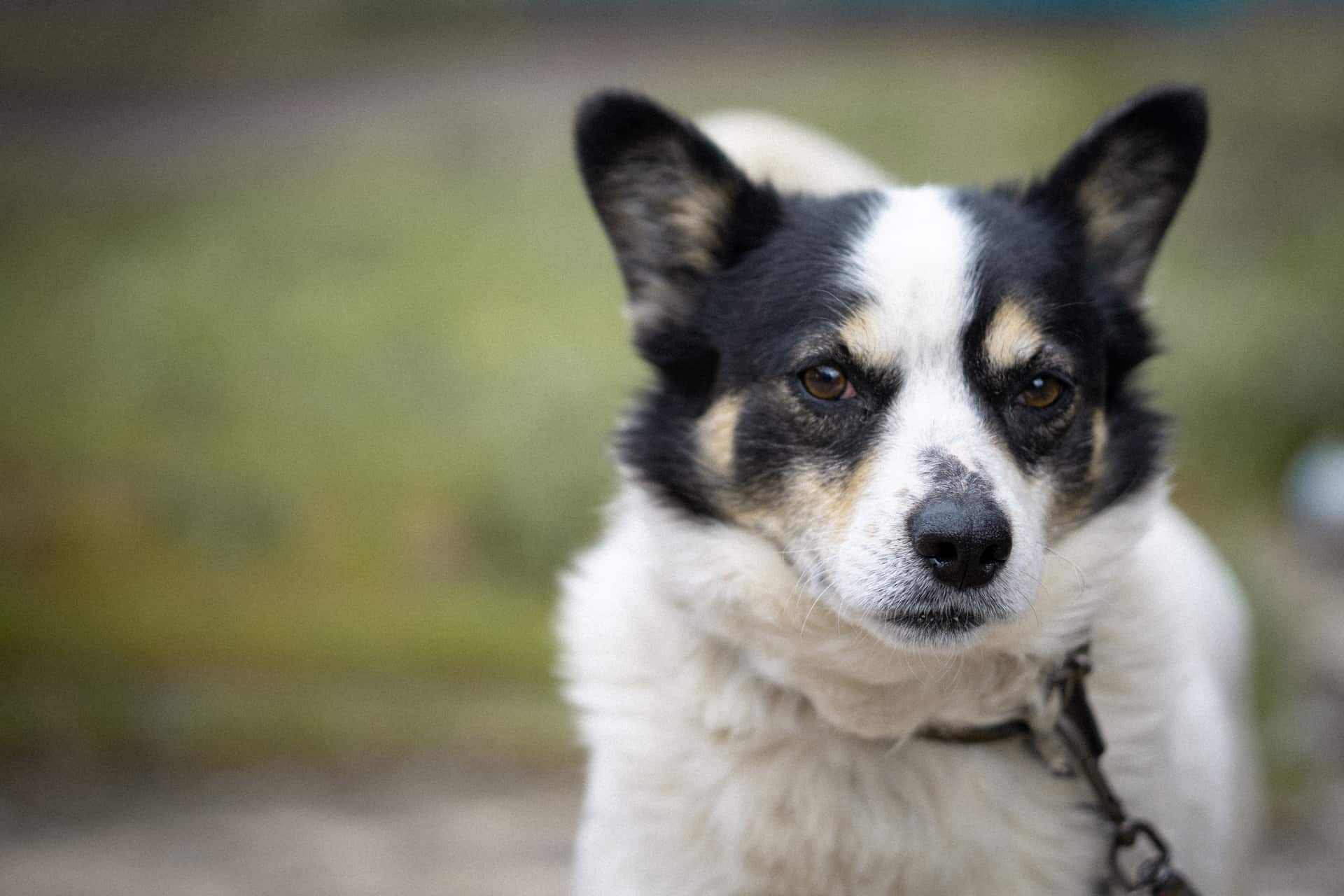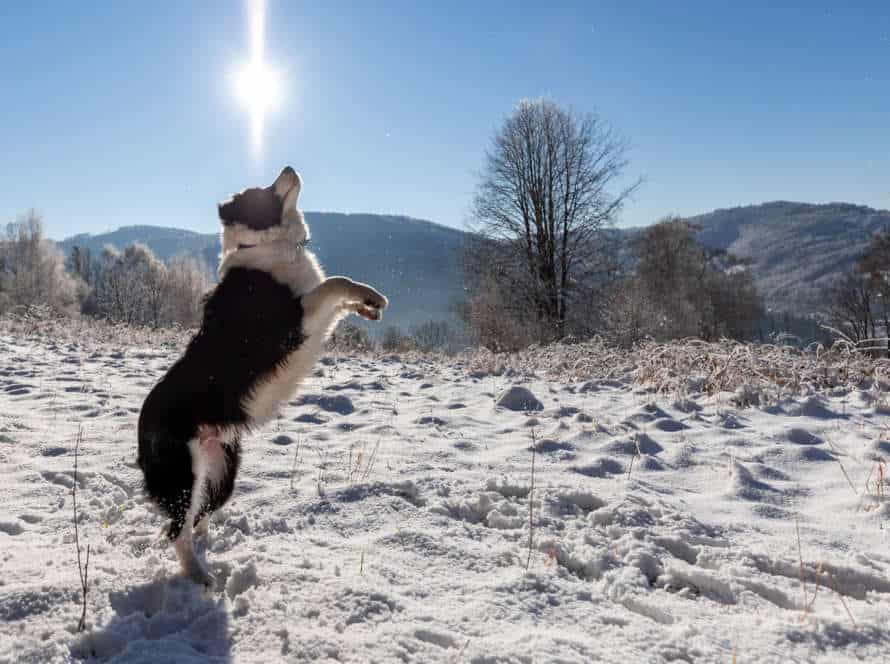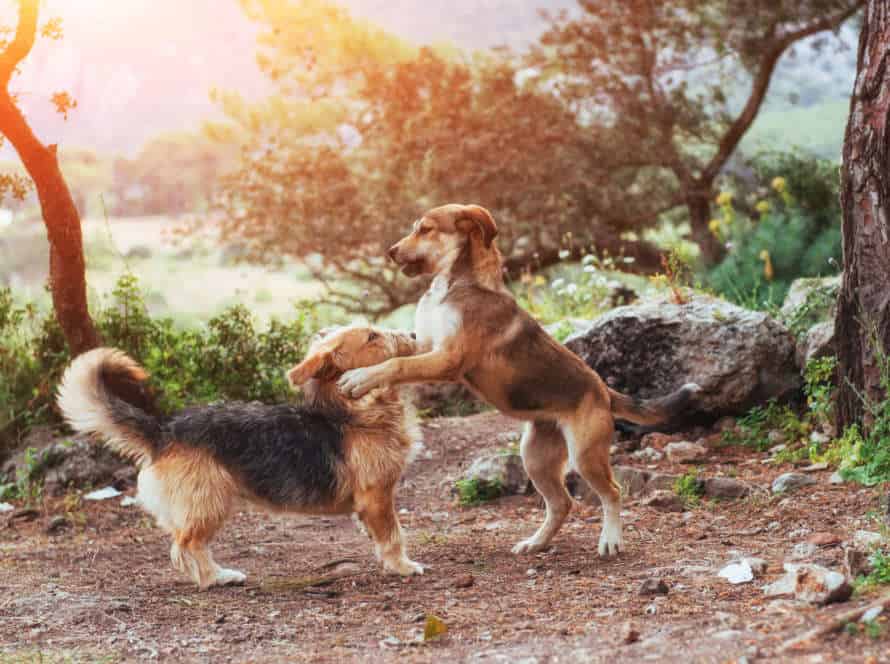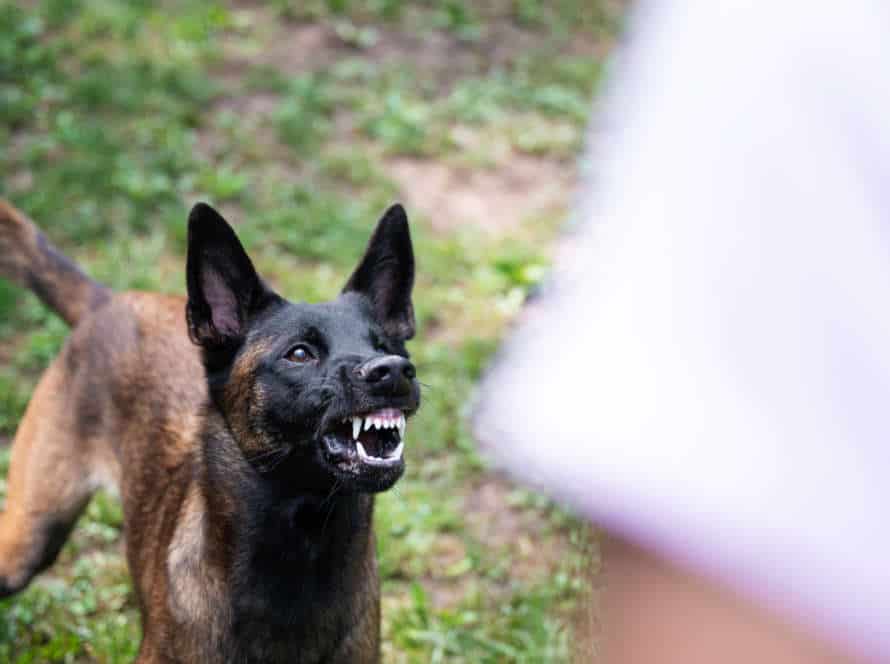Socialization: A Key Factor in Preventing Excessive Barking
Socializing is key to stop excessive barking in dogs. When they are socialized from when they are young, they learn how to interact with others in a good way. Here are a few tips to socialize your dog and lessen barking:
- Take your pup out on trips to the park, walks in busy areas, and vet visits.
- Let them meet new dogs and humans but watch their behavior to make sure it’s good.
- Reward them with treats, toys, or kind words when they do something well.
By socializing your pup, you can help control excessive barking and make sure your pooch is happy and behaves well.
The Importance of Socializing a Dog
Socialization is very important for a pup’s health and training. Exposing them to lots of people and places will help them adjust better and be less anxious. This can stop excessive barking, and other bad behaviors. Why is this factor so crucial for raising a pup? Let’s take a closer look.
What Socialization is and Why it’s Important
Socializing a pup is essential. It allows them to gain confidence and be flexible. Plus, it prevents behavioral issues like nervousness, aggression, and too much barking. Dogs that are socialized properly tend to be better behaved and more relaxed in different places, making them easier to be around. Here are some tips for socializing your pooch:
- Beginning early: Socialization should start when your pup is 3-14 weeks old.
- Applauding good behavior: Reward your pup with treats, praise, and toys when they behave positively around new people and animals.
- Stimulus slowly: Introduce your dog to new experiences slowly and under control. Start with a not-so-scary situation and slowly increase the intensity.
- Seeking professional help: If your pup is displaying signs of fear or aggression towards unfamiliar people or animals, consult a certified dog behaviorist who can help you socialize your pup.
The Benefits of Socializing Your Dog
Socializing your pup is very important to its health. Here are the advantages:
- Better behavior: Your pup will be better around people and other canines.
- Less anxiety: Non-socialized dogs can be nervous, so socialization helps their poise and lowers stress.
- More exercise: Interacting with other dogs gives your dog exercise and playtime.
- Greater learning: It’ll learn new things and good ways faster.
Pro Tip: It’s best to start socializing your dog when it’s young – between 3 to 14 weeks. This is known as the “socialization window” when puppies are most open to new stuff.
How Socialization Helps Prevent Excessive Barking
Socializing is key to preventing excessive barking in dogs. Socialized dogs bark less than unsocialized ones. Here’s how socializing helps:
- It helps dogs become comfortable with different people, animals, and environments. This reduces their fear, anxiety, or territorial instincts, which cause barking.
- Exposure to new sounds, sights, and smells stops dogs from barking at ordinary things.
- Interacting with other dogs of different breeds, sizes, and temperaments builds social skills and self-assurance, making them less likely to bark excessively.
In conclusion, responsible pet owners should socialize their dog from an early age to support their mental and emotional health, and prevent excessive barking.
Pro-tip: Training classes and dog parks are great ways to socialize your pup!
Socialization Techniques
Socializing your dog is vital to controlling their excessive barking. It can help them recognize when it is acceptable to bark, as well as build relationships with other dogs and humans. This article will provide a few tips on how to socialize your pup and reduce their barking while cultivating a strong bond.
Early Socialization: Puppy Class and Socialization with People
Early socializing of pups is a must for preventing too much barking. Puppy classes and socializing with people are two sure-fire techniques.
Puppy classes give puppies chances to meet other puppies and learn basic commands, as well as handle shyness and nervousness. Also, owners find out how to train and socialize their puppies properly.
Socializing your pup with people such as family members, friends, and strangers helps them build trust and be comfortable around all types of people. Make sure to expose your pup to different situations, environments, and stimuli to stop fear and aggression, and promote calm and pleasant behavior.
Providing your pup with early socialization experiences can reduce the chances of too much barking in adulthood and make sure they are happy and healthy.
Socialization Through Obedience Training
Obedience training is a great way to make your pup more social and stop its barking. Here’s how:
- Start young – the younger, the better!
- Use rewards – when your dog follows a command, give it a treat, some affection, or just praise it.
- Be consistent – use the same commands and rewards every time.
- Set boundaries – show it what behavior is acceptable and what isn’t.
- Practice often – this helps your dog remember commands and behave properly.
- Get help – if you’re struggling, enlist a professional trainer.
With obedience training, your pup will be well socialized and less likely to bark too much.
Socialization with Other Dogs and Animals
Socializing your pup with other canines and critters is a must for avoiding too much barking and other behavioral troubles. Here are a few working techniques:
- Gradual Introduction: Start off by slowly introducing your dog to other animals in a managed and secure atmosphere. Start with chilled out and non-threatening pets and steadily move up to more active and playful ones.
- Positive Reinforcement: Supply your dog with treats or compliments for being pleasant around other animals. This will encourage good behavior and motivate your dog to communicate positively with other creatures.
- Regularity: Exercise socialization repeatedly and constantly to make it part of your dog’s routine. This will help your dog to be more at ease and less nervous around other animals.
Note that each pup is exclusive, and socialization plans may differ based on your dog’s temperament and breed. Look for advice from an expert trainer if you have any worries or queries concerning socializing your dog.
Signs of an Unsocialized Dog
Dog socialization is key in avoiding too much barking. Dogs bark a lot of times for attention or ’cause they’re anxious. Unsocialized dogs can show signs like aggressive behavior, too much barking and not wanting to interact with other animals or people.
This article looks at the signs of an unsocialized dog and how to fix it.
Barking and other Aggressive Behaviors
Barking and other aggressive behaviors? That’s a sign of an unsocialized dog. To prevent these issues, socialization is key. Here are some tips!
- Start early – introduce your pup to new people, places and environments when they’re 3-14 weeks old.
- Positive reinforcement – reward them with treats and praise for good behaviour.
- Keep it consistent – expose your dog to different experiences and stimuli regularly.
- Gradual exposure – don’t overwhelm them by showing them too much at once.
- Get professional help – if your dog has aggressive or other issues, seek professional help.
Socialization is key in preventing issues like excessive barking in dogs.
Fear of New Situations
Fear of new situations is an indication of an unsocialized dog. Socialization is vital in keeping excessive barking at bay.
Signs of an unsocialized dog? Cowering, growling or hiding when faced with strangers, animals or environments. They may also bark excessively or become aggressive in new situations.
To help your dog overcome their fear and reduce barking, socialize them from a young age. Expose them to new people, animals and environments.
Introduce your pup to new experiences gradually. Reward them with treats and praise for calm, appropriate behavior.
With steady, positive socialization, your dog can become confident and well-adjusted. Plus, less fear and barking!
Difficulty Bonding with Owners
Unable to bond with owners? It could be a result of an unsocialized dog. What’s that? An unsocialized pup hasn’t been exposed to various situations and stimuli. Here’re signs of such a pup:
- Fear or aggression towards humans or other animals
- Destructive behavior when alone
- Nonstop barking, howling or whining
Socialization is the solution. Introduce your doggo to people, animals and environments gradually. This teaches them new behaviors and prevents fear of unfamiliar things. It also helps the pup bond with you, trust their environment and behave well in any situation. Socialization is a process. It may take weeks or months to see the desired outcomes.
Pro Tip: For correct socialization, get assistance from a professional dog trainer.
Addressing Excessive Barking with Socialization
Socialization is important for curbing excessive barking in canines. Social activities are not only helpful in reducing barking, but also help build a strong bond between you and your pup. Let’s take a deeper look at how socialization affects excess barking.
Identifying the Root Cause of Barking Behavior
Barking is normal for dogs. But, too much barking can show an issue. To fix it, you have to know why it’s happening.
Reasons include: boredom, worry, fear, wanting to show territory, or not enough socializing. To learn the cause, you must watch your dog and see how they act in different situations.
Socializing your pup from a young age is best to keep them used to different people and animals. This will help reduce fear or worry.
To tackle too much barking, make a routine and give physical and mental activity. Sign them up for a social program, give rewards, use positive reinforcement, and train them. Patience, consistency, and lots of positivity are needed!
Addressing Separation Anxiety
Separation anxiety is a problem many dog owners face. Agitation, anxiety, and excessive barking can be signs of this issue. Socialization is key in preventing the barking and addressing the anxiety.
Socializing your pup means teaching them to be comfortable around unfamiliar people, animals, and places. This can help reduce their anxiousness and barking. Here are some tips for socializing your dog:
- Start young
- Introduce them to new things slowly
- Use obedience training
- Regularly expose them to new situations
By following these tips, you can help your dog tackle separation anxiety and stop excessive barking. Pro tip: If your pup still has anxiety despite your efforts, a professional trainer or vet may be able to help.
Desensitization Techniques to Reduce Barking
Desensitization is an efficient way to decrease barking in dogs. Expose your pup gradually to stimuli that cause too much barking. Train them to be desensitized to triggers.
Here are a few techniques you can try:
- Counter-conditioning: Connect the trigger to something positive, like a toy or treat. This creates a good connection.
- Stimulus control: Educate your pup a command like “quiet”. Reward them when they obey.
- Gradual exposure: Begin with a low-intensity version of the trigger and slowly increase the intensity.
- Socialization: Let your pup meet different people, animals, and new locations. This helps them become calmer and less reactive to new things.
Desensitization techniques require patience and time. However, with consistent practice, you can help your dog be less reactive and reduce too much barking.
Conclusion
Preventing excessive barking? Socialization is key! This builds strong communication between owner and pup. It also helps a dog to become familiar with different situations, easing any anxiety or stress. Socialization teaches a pup how to act around people and animals. The aim? A happy, well-behaved doggo!
Recap of the Importance of Socializing a Dog
Socialization is essential for raising a pup and stopping excessive barking. It helps dogs act nicely around other animals and people. Here’s the scoop on how important socialization is for dogs:
- It makes them brave and friendly.
- It teaches them to stay cool in new settings, reducing fear and tension.
- Socialized dogs rarely bark too much, attack, or wreck stuff.
- Introducing them to different noises, scents, surfaces, and places during their key learning period (3-14 weeks) can affect their behavior as adults.
Socializing your pup takes effort, but it’s necessary for their emotional and physical health.
Pro Tip: Join your pup in a socialization class or hire a pro dog trainer to make sure they learn properly and get the right socialization.
Encouragement for Dog Owners to Socialize their Dogs.
Socializing your pup is key to avoiding too much barking and other behavioural issues. Here’s why dog owners should make an effort to socialize their furry friends:
- Reduces Stress: Socializing your pet decreases worry and fear in novel situations. Dogs that are anxious and nervous usually bark a lot or even become aggressive.
- Grows Confidence: Socializing your pup helps build confidence and assurance. Dogs that are sure of themselves are less likely to bark a lot as they feel more comfortable in different circumstances.
- Enhanced Communication: Socializing your doggo helps to improve communication between you and your pet. It boosts a stronger bond between the two of you and a better grasp of each other’s needs.
- More Adapted: A well-socialized pup is simpler to include in the family and the community. They are less likely to feel alone and bark a lot as a way of calling out for attention.
As a dog owner, taking the time to socialize your pooch is necessary to avoid too much barking and improve the overall wellbeing of your furry companion.
Pro tip: Begin socializing your pup at an early stage, preferably within its first three months, and step by step broaden its exposure to new folks, surroundings, and other dogs.
Frequently Asked Questions
Q: What is socialization?
A: Socialization refers to the process of exposing dogs to various people, animals, and environments so that they can become more comfortable and confident in their surroundings.
Q: Why is socialization important in preventing excessive barking?
A: Dogs who are not properly socialized may bark excessively out of fear or anxiety when confronted with new people or situations. By exposing them to a variety of experiences in a positive and controlled way, they can learn to react calmly and appropriately.
Q: When should I start socializing my dog?
A: The earlier you start, the better! Puppies are most receptive to new experiences between the ages of 3 and 14 weeks. However, socialization should be an ongoing process throughout your dog’s life.
Q: What are some ways to socialize my dog?
A: Introduce your dog to new people, dogs, and environments gradually and in a controlled manner. Take them on regular walks, visit dog parks, attend obedience classes, and expose them to different sounds and stimuli.
Q: Can socialization help reduce other problem behaviors in dogs?
A: Absolutely! Socialization can also help reduce aggression, anxiety, and destructive behavior in dogs, as well as promote better overall mental and physical health.
Q: What should I do if my dog continues to bark excessively despite socialization?
A: If your dog continues to bark excessively despite proper socialization and training, it’s important to seek advice from a professional dog trainer or behaviorist who can provide personalized guidance and support.







